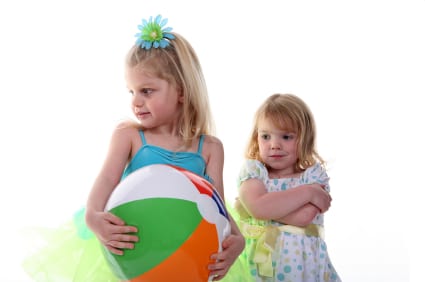 As we sift through the shiny gift wrapping and toss out the empty iPod and Ugg boxes left behind following Hannukah and Christmas, let’s pause to contemplate a parenting conundrum gummier than double-stick tape: How to love our children without spoiling them rotten.
As we sift through the shiny gift wrapping and toss out the empty iPod and Ugg boxes left behind following Hannukah and Christmas, let’s pause to contemplate a parenting conundrum gummier than double-stick tape: How to love our children without spoiling them rotten.
Three out of four moms consider their kids spoiled by the holidays, according to a recent survey on Parenting.com. Paradoxically, the survey also found that most parents use the holidays as an opportunity to teach volunteerism and charity. On a recent Michel Martin NPR parenting segment, I and two other moms dug into strategies for instilling generosity of spirit into kids who have way too many material blessings.
First we tackled the cardinal sin of motherhood: guilt. Guilt that we give our kids too much. Guilt that we don’t give them enough. Guilt that we don’t model guilt-free joy and self-esteem.
I find candor to be a powerful antidote to free-floating guilt. Let’s play it as it lays: my kids are definitely spoiled. Just about every kid they know is spoiled. We live in a spoiled world. I was spoiled growing up, too. So I don’t bother worrying about it at Christmas because the problem is much bigger than how many gifts they or their friends receive.
I grew up in a privileged environment – privileged educationally, privileged in terms of living in a safe neighborhood, privileged in economic security. My kids live in that world. They go to private school, they ride in SUVs more than subways, and they have never once worried about having enough money to buy ice cream. All of the parents they know are college educated and have graduate degrees. It’s pretty well guaranteed our kids will, too. I wish every kid in the world could grow up this kind of “spoiled.”
Sometimes, that environment teaches kids to be uber-sensitive and aware that their blessings are unearned and completely accidental. Their gratitude leads to true charity. Some of the most generous kids and grownups I know are the ones with the greatest material wealth.
But I also see kids whose wealth leads them in the other direction. I can’t believe how bratty and selfish some children are. Herein likes the tricky parenting challenge, not just during the last week of December, but over the entire course of their lives. How do you teach kids to be grateful and to have real charity in their hearts?
You’ve probably heard the standard parenting advice. Establish a charity jar for 25% of their weekly allowance. Take them to volunteer at a soup kitchen on Thanksgiving. Have your kids give new, unwrapped gifts to your school’s charity drive. Sign them up for a “service learning” class at your church or synagogue.
All good stuff.
However, I’m not sure you can mandate generosity of spirit in kids. You have to model it and nag them about it and you have to try 100 different ways to teach them to be good. There’s a real risk, however, of teaching kids to mix charity with pity.
I don’t want my kids to think that doing good involves a drive across town to give something we don’t need to kids who have too little one day a year. I think there’s a place for that kind of charity. But what I really want to see in my kids is spontaneous generosity of spirit.
I had something happen just a couple of days ago that made me feel like OK, we’re on the right track here. It had nothing to do with Christmas. Ten o’clock at night, cold out, the older kids were in pajamas ready to get into bed. Our neighbor called. His cat had run outside and had been hit by a car in front of our house; he was desperate because couldn’t find the injured animal. My kids, without a second, grabbed flashlights and ran out to help him. They found the cat, fortunately, and his injuries were limited to a bloody nose.
But what I found was even more priceless: my children had helped a friend in need. Without a single complaint or expectation of a gift or a grade in return. Charity is not always about giving money, food or presents to less fortunate kids across town. Sometimes, charity is about what you do and how you act in your own front yard.





